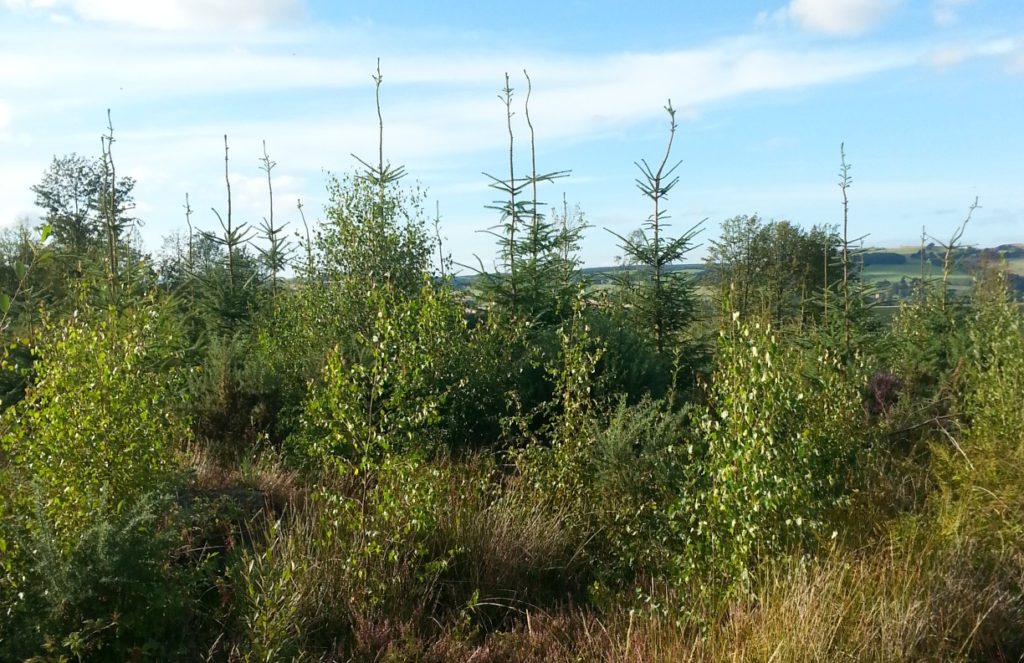Everyone has an idea for how to fix the environmental problems we face. I’ll throw another one onto the pile.

Recently, we have had students protesting to save the environment. Young people banding together to make their voice heard. Something which I applaud, people deserve to have their say like this, even if the highest in government criticise them for it.
We have also had other organised groups leading altogether more questionable protests to save the environment. While I enjoy civil disobedience, I don’t think these are helpful especially considering they have disrupted public transport, a successful solution to reducing air pollution.
The solution we really need if we want to combat climate change, the immediate change and action we need if we are to make a dent in reversing the problem… Is war. Don’t misunderstand, not a voilent war. Not going and invading countries that mine oil or killing people who pollute too much. By “war” I mean the political and social mindset that goes with it.
I have heard the idea of a “State of Emergency” for the environment has been thrown around by politicians, but that doesn’t cut it. A State of Emergency is a passive act. You are reacting to external events. It is a coping mechanism. What we need is to fight for a solution – hence the warmongering terminology.
The last time there was such a massive immediate threat to life was World War 2. During it, politicians put differences aside to fight for what was right and good for all. People banded together to fight for a common cause, even if it put them through some hardship or difficulty. Society could shift quickly in ways that might have seemed unreasonable in peacetime.
With climate change the threat is all too real. But it is not immediate. It is a slow burn, and that makes anyone who calls for fast acting action a radical whose opinions could never be listened to seriously, despite how well intentioned they may be.
Fast action is what we need. We need to rally together to fight off the enemy. The enemy is an almost intangible force of nature. In a bizarre way, that enemy is our past selves. Big changes need to happen to solve climate change, and everyone will be affected by it for the worse. But short term difficulty is by far preferable to being doomed forever.
Governments make targets decades down the line when we need change to start tomorrow. Politicians want to save face by “safeguarding” jobs that might be lost if we had to make the changes needed. It is disheartening to think that some people might have to quit their jobs, but if they work in the oil industry then that job must go as far as I’m concerned. Skills are transferrable.
War for the environment would bring progress. Despite the feelings you may have about war, it is undisputable that wars are engines for progress. Societal progress, maybe. Technological progress, definitely. In a situation of war, the government and private entities are incentivised to seek out far more efficient means of killing people. In war for the environment, those same groups could be incentivised to seek out new more efficient and environmentally safe means for every facet of life. People who previously had to give up jobs will have skills that could be useful in brand new industries, we just need a push to start investigating them.
Money can be hard to come by normally. When faced with a budget, it is hard to blame politicians for cutting out long term environmental projects in favour of more immediate needs. But in a war, a situation where everyone had to fight together for a common cause, suddenly the idea of money becomes less of a priority when pit against the problems that needs to be overcome.
At the end of the last World War, people and countries made pacts to remember the past and not make the same mistakes again. To not willingly or passively allow such horrors against human life to occur. We’ve been fairly good at that. But now there is a threat just as great looming on the horizon. Entire future generations are doomed if action doesn’t occur fast. It would be incredibly irresponsible to just sit back and let it happen. Perhaps going to war isn’t quite the best idea, but there are certainly lessons that could be learned from the idea.


Great input @lonm and thank you for sharing it. The rapidity of climate change we’re facing and its impacts are among the most scary things humankind has to face these days.
We definitely need more actions and solutions. Often by solving one puzzle of the equation we actually impact a whole chain which is also the beauty of it and can give hope that we can still make it happen. (See this documentary in French about the disappearance of some deers in Yellowstone: https://www.youtube.com/watch?v=91SgUAnBdYI)
War is a very stressful state that humankind cannot hold for very long and is per se not very sustainable. I strongly believe in restoring ecosystems such as a forest, a river, etc. Bringing balance back where we modified can have huge impact on the water level, biodiversity. It often feels that after all there isn’t one solution but many and they’re not as complicated as they may seen. They just require political will power and some good actors to implement them. And most of all we need to stop destroying what is left.
One of the biggest challenge we’re facing is the economical and lobby system that is very strong against solving the environmental crisis we’re facing. And I’m still wondering how they can be turned around. In the meantime, at a very small scale, I’m trying to support to the best I can initiatives and NGOs who are dedicated at improving the situation.
On the economical side, Gaël Giraud has an interesting solution to offer: use the same solutions we used to save the big banks in 2011 to finance the restoration and solutions implementations. If you want to know more about it, watch or listen to this interview (it’s in French but since you understand it as well, I hope it helps): https://thinkerview.com/gael-giraud-tsunami-financier-desastre-humanitaire/
What else can be done? Particularly when political regimes use nature to make more money instead of preserving them?
One could say the same of climate change. If we have to pick one – hardship to endure a failing environment or hardship to help save it, I know which one I’d pick.
Politicians seem willing to make promises that fight for the environment, but they always put “targets” and such so many decades down the line that they might as well not exist. I think this is mostly to avoid the kind of (necessary) abrupt change that would upset the current economical situation. E.g. in Scotland, North Sea carbon fuel is a pretty big sector, so of course the government is incentivised against anything that might threaten it – at least until all the gas and so on runs out. Perhaps the war metaphor isn’t quite right, but something is needed to position such economic crutches as necessary sacrifices.
¯\_(ツ)_/¯. Politicians seem to like hot-button issues. It’s a pity Brexit is so big in Britain, as if it was not, then I think Environmental concerns would be the hot-button issue they all discussed (if recent protests are any indication of popular opinion).
As for the links you’ve provided, they looks very interesting, I’ll need to check them out. Thanks.